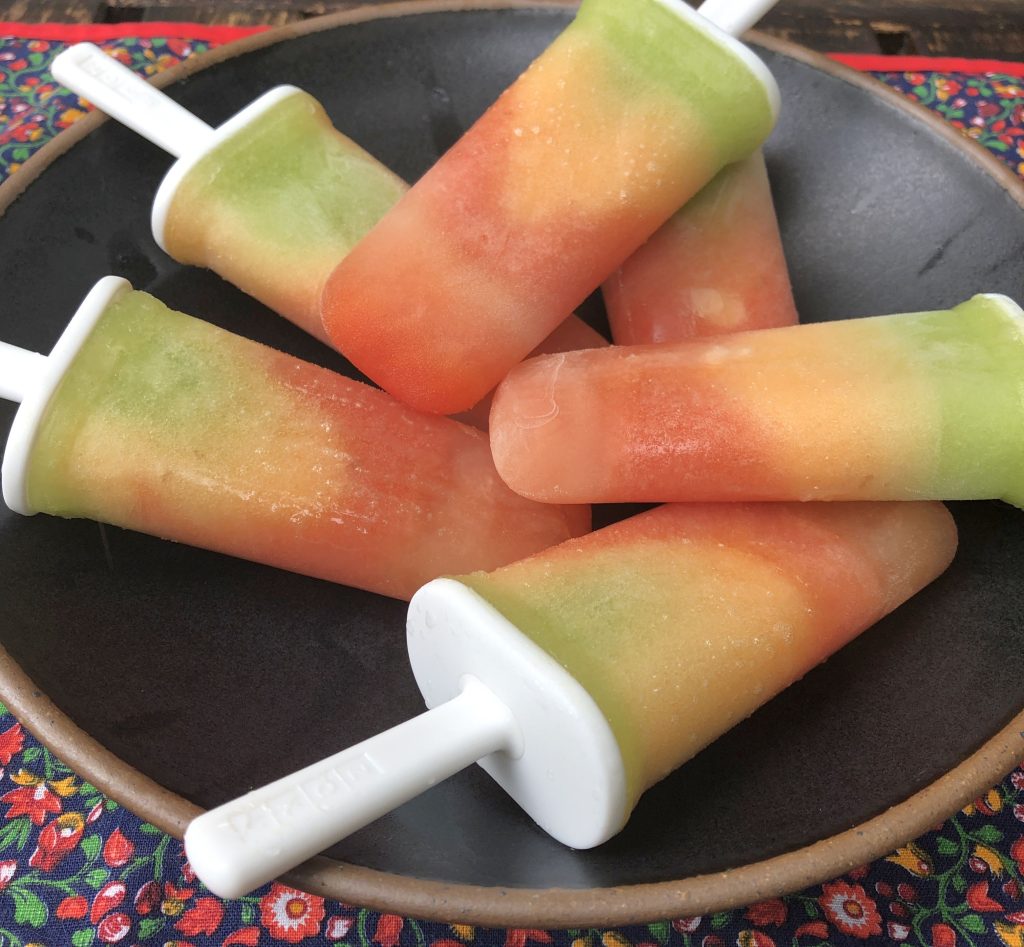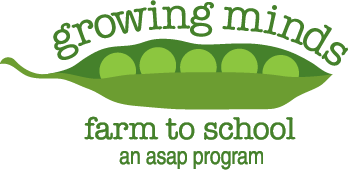Farmers Danielle Keeter and Mark McDonagh are co-owners of Mighty Gnome Market Garden in Waynesville, NC. They believe that a small farm can have a profound impact on their local food economy. They grow fresh, seasonal produce as sustainably as possible, all while following organic methods. Danielle explains that “everything is done by hand, we’re not riding on the back of a tractor. It’s just the two of us doing all of this. My favorite part about running the Market Garden is a toss-up between eating really great food and the community that has surrounded us here.”
Watermelon is one of the fruits that Mighty Gnome grows. People have been eating watermelons or relatives of watermelons for thousands of years. We know this because archaeologists found watermelon seeds, along with the remnants of other fruits, at a 5,000-year-old settlement in Africa. Seeds, as well as paintings of watermelons, also have been discovered in Egyptian tombs (including King Tut’s) built more than 4,000 years ago. However, those watermelons looked and tasted much different than the watermelons we know and love today.
Other interesting facts about watermelons:
- They are in the cucurbit family, which includes melon, pumpkin, squash, and cucumber.
- Watermelon is a great source of vitamins A, B6, C, and thiamin.
- A cup and a half of watermelon contains about 9 to 13 milligrams of lycopene. Lycopene is a powerful antioxidant and is related to beta-carotene, giving fruits and vegetables a red color.
- Georgia is the largest producer of watermelon in the United States.
Children’s literature:
- Watermelon Wishes by Lisa Moser, tells the story of how Charlie and his grandfather spend their summer growing a patch of watermelons, and waiting for the perfect one to wish on. Read aloud on YouTube.
- One Watermelon Seed by Celia Barker Lottridge, is a colorful counting book which follows Max and Josephine as they plant seeds and enjoy their harvest. Read aloud on YouTube.
- The Watermelon Seed by Greg Pizzoli, is the tale of how crocodile loves watermelon, but what will happen when his greatest fear of swallowing a watermelon seed comes to pass? Read aloud on YouTube.
Recipe:
Melon Medley Paletas Makes about 12 paletas

“Paletas are traditional Mexican ice pops, usually made from pureed summer fruits. Melons are especially good for pops because they are naturally high in water and sugar. This recipe calls for watermelon, cantaloupe, and honeydew, but you can experiment with the types of melon available at your market. If you don’t have molds, you can use large ice-cube trays or paper cups with wooden sticks. The yield is approximate and depends on the size of your melons and your molds.”
Kids can… scoop the seeds from the melons, remove the melon flesh with an ice cream scoop, place the melon in the blender and make the puree, and help fill the molds.
Ingredients:
- 1 small seedless watermelon
- 1 small cantaloupe
- 1 small honeydew melon
Directions:
- Cut each melon in half. With a spoon, scoop out the seeds from the cantaloupe and honeydew. Then scoop out the flesh from all the melons with an ice cream scoop. Or you can cut the flesh from the rind with a knife, then cut it into chunks.
- Have ready 12 ice-pop molds. You may want to have more on hand in case you end up with extra puree.
- Put the watermelon in a blender and process until smooth. Fill one-third of the molds with the puree. Rinse out the blender and repeat with the cantaloupe and then with the honeydew. The puree can be a bit chunky.
- Place the molds in the freezer. If you are using nontraditional molds, such as ice-cube trays or paper cups, you will need to freeze the puree until it is partially frozen, usually about 2 hours, then insert a stick into each mold and return the molds to the freezer.
- Freeze the paletas for at least 8 hours or up to 24 hours. They will keep in the freezer for 1 week.
